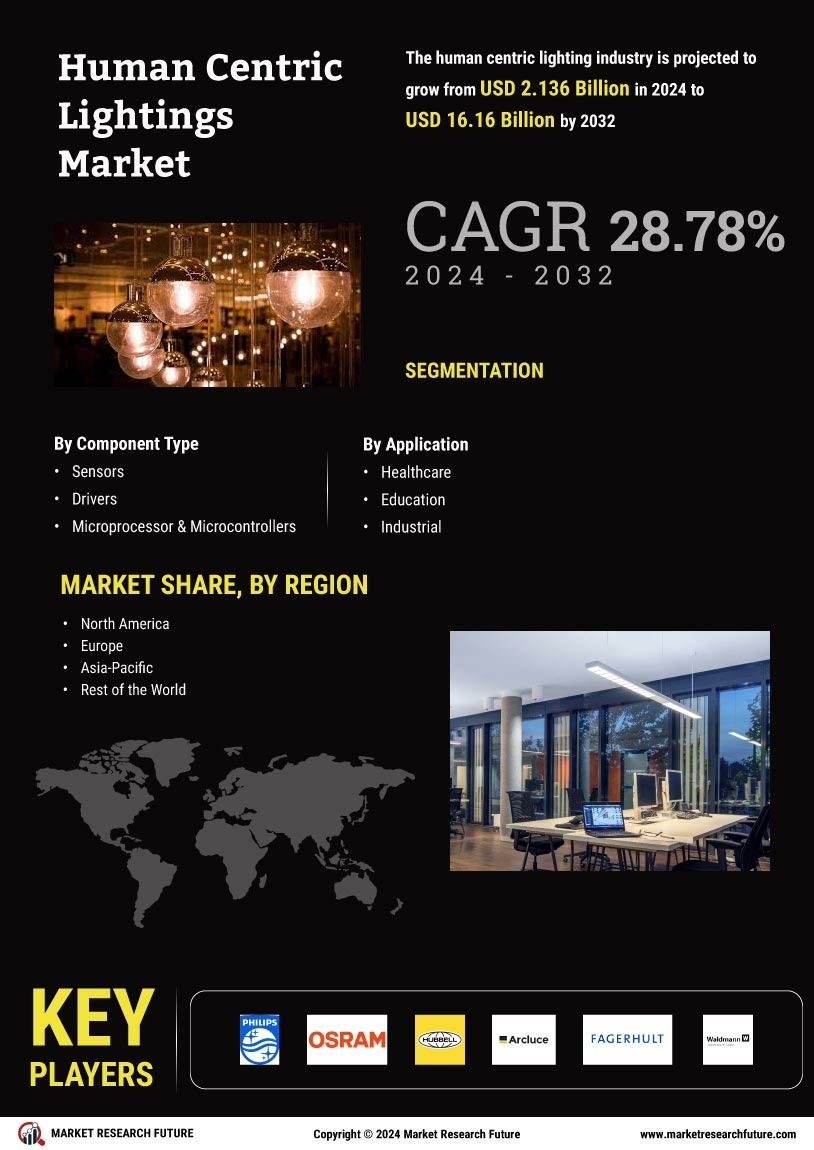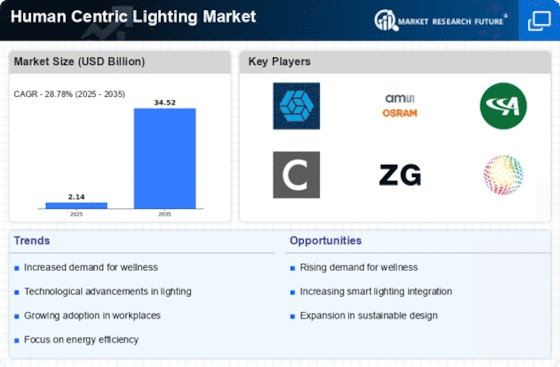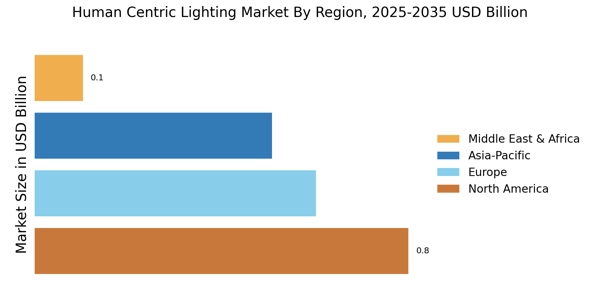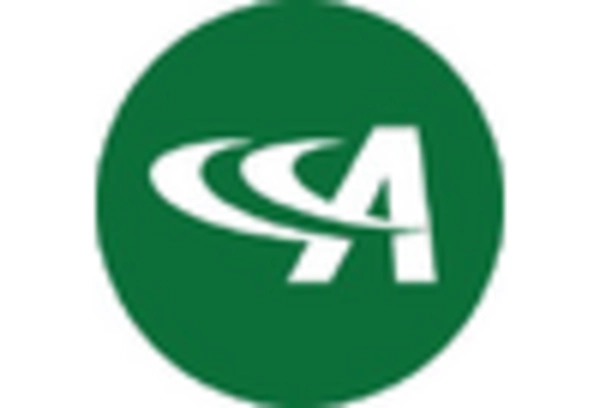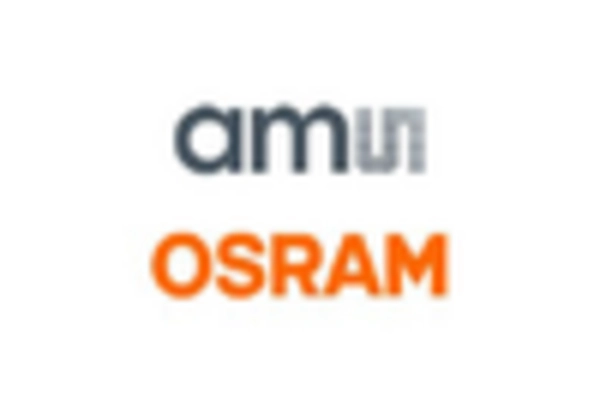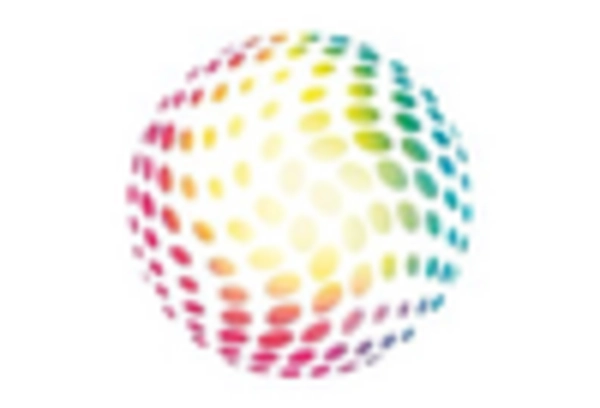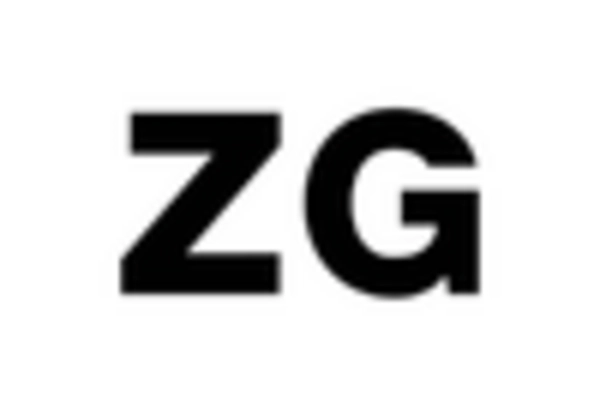Regulatory Support for Energy Efficiency
Regulatory frameworks promoting energy efficiency are emerging as a crucial driver in the Human Centric Lighting Market. Governments worldwide are implementing stringent energy efficiency standards and incentives for adopting advanced lighting technologies. For example, energy-efficient lighting solutions are often eligible for rebates and tax credits, encouraging businesses and consumers to transition to human centric lighting systems. The market for energy-efficient lighting is anticipated to grow at a compound annual growth rate of around 8% through the next few years. This regulatory support not only fosters innovation in lighting technologies but also enhances the appeal of human centric lighting solutions that prioritize energy savings and sustainability.
Rising Awareness of Environmental Impact
The rising awareness of environmental impact is increasingly shaping consumer preferences within the Human Centric Lighting Market. As sustainability becomes a priority for individuals and organizations alike, there is a growing demand for lighting solutions that minimize ecological footprints. Human centric lighting systems that utilize energy-efficient technologies and sustainable materials are gaining traction. Market Research Future indicates that consumers are willing to pay a premium for products that are environmentally friendly, suggesting a shift in purchasing behavior. This trend not only reflects a broader societal movement towards sustainability but also indicates a potential for growth in the human centric lighting market as manufacturers respond to these evolving consumer expectations.
Emphasis on Mental Health and Productivity
The growing emphasis on mental health and productivity in various environments, including workplaces and educational institutions, significantly influences the Human Centric Lighting Market. Research indicates that appropriate lighting can enhance mood, reduce stress, and improve overall well-being. For instance, studies have shown that exposure to natural light can increase productivity by up to 20%. As organizations strive to create healthier environments, the demand for human centric lighting solutions that mimic natural light patterns is expected to rise. This trend not only aligns with the increasing awareness of mental health issues but also suggests a potential market expansion as more entities invest in lighting systems that support employee and student well-being.
Integration of IoT in Human Centric Lighting
The integration of Internet of Things (IoT) technology into the Human Centric Lighting Market appears to be a pivotal driver. IoT-enabled lighting systems facilitate real-time monitoring and control, allowing users to adjust lighting conditions based on their preferences and needs. This adaptability not only enhances user experience but also promotes energy efficiency. According to recent estimates, the IoT in lighting market is projected to reach a value of approximately 30 billion by 2026, indicating a robust growth trajectory. As more consumers and businesses recognize the benefits of smart lighting solutions, the demand for human centric lighting systems that incorporate IoT technology is likely to increase, thereby propelling the market forward.
Technological Advancements in Lighting Solutions
Technological advancements in lighting solutions are driving the evolution of the Human Centric Lighting Market. Innovations such as LED technology, tunable white lighting, and advanced control systems are enhancing the functionality and efficiency of lighting products. The LED segment alone is projected to account for a significant share of the lighting market, with estimates suggesting it could reach over 60 billion by 2025. These advancements enable the creation of lighting systems that can adjust color temperature and intensity, aligning with human circadian rhythms. As consumers become more aware of the benefits of these technologies, the demand for human centric lighting solutions that leverage such innovations is likely to grow, further propelling market dynamics.
